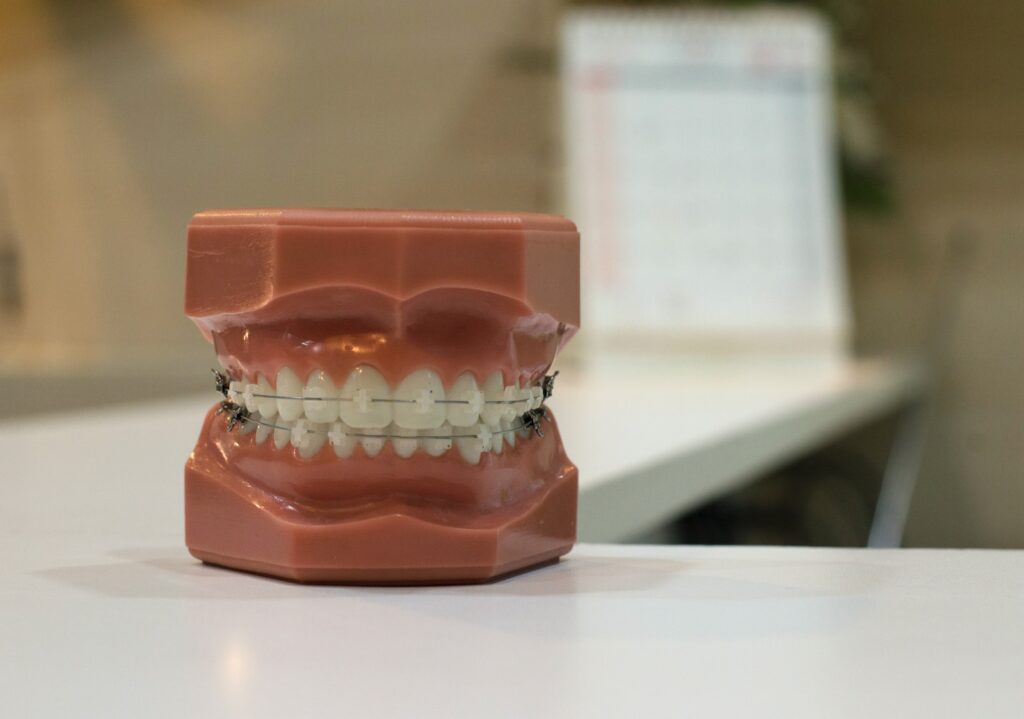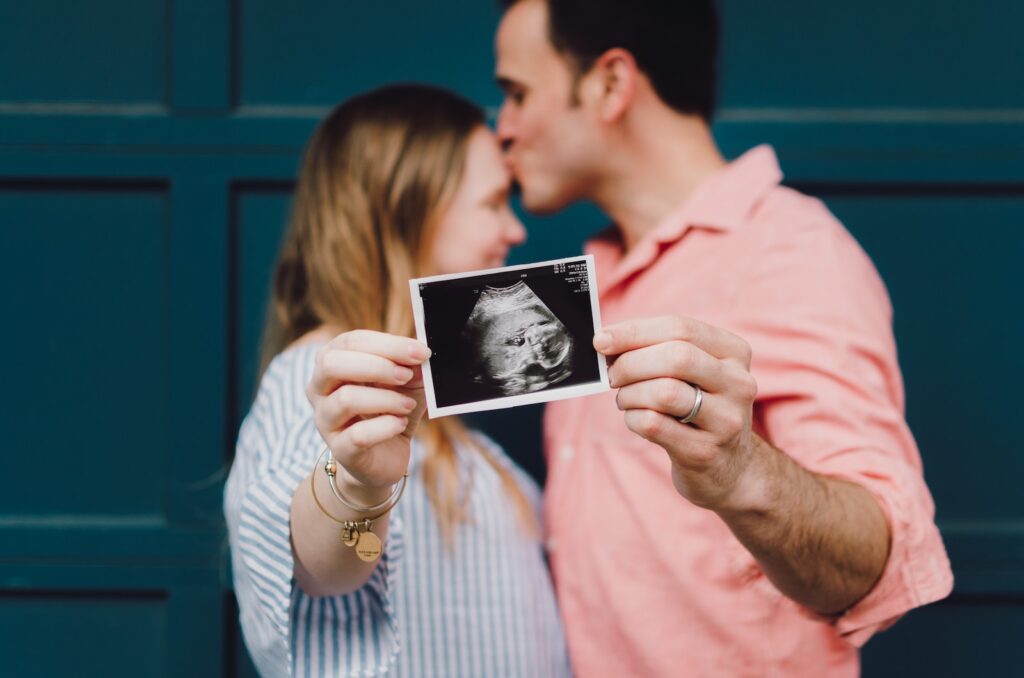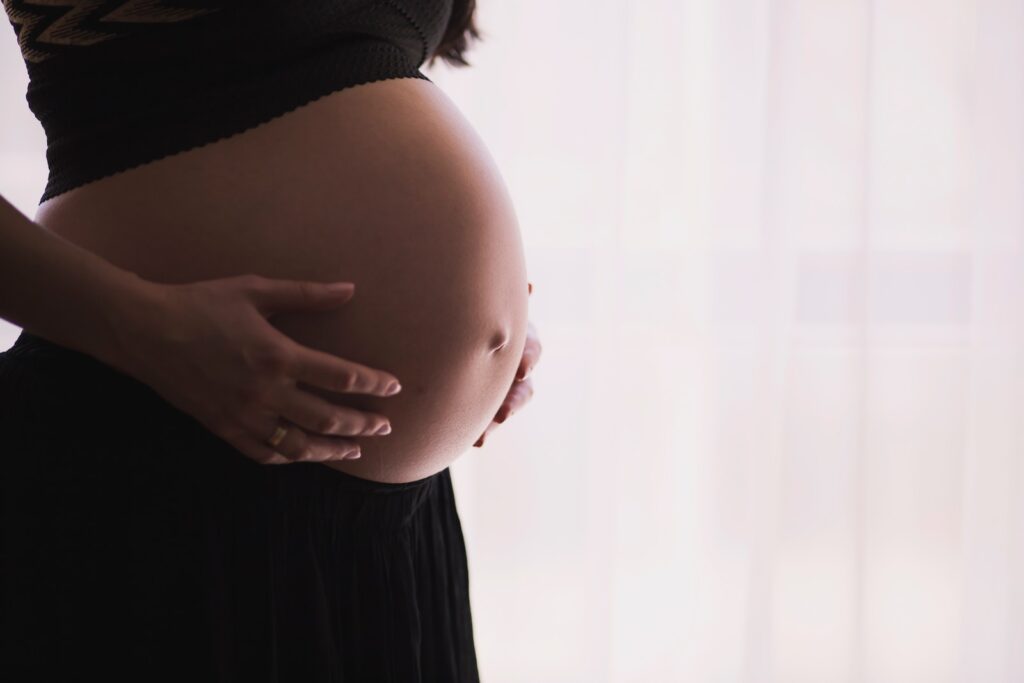Having missed periods was one of the most famous signs of pregnancy a long time ago, but what if you are someone who is experiencing irregular periods? Well, I am sure this particular aspect is not sufficient for the assurance of being pregnant.
During this period, the human body undergoes many changes, and those changes are certainly associated with various signs and symptoms. This comprehensive guide will walk you through the most common signs of pregnancy.
Early Pregnancy: When It Started
Pregnancy starts on the very first day of your last period and is segregated into three trimesters, which all in all include 40 weeks. During this phase of early pregnancy, most women are not aware that they have even conceived. Experiencing little signs and symptoms is a very common phenomenon of pregnancy that may appear as soon as you conceive.
Here is a checklist: How did it start?
Early Signs of Pregnancy
Morning Sickness With Or Without Vomiting And Nausea
Most women experience this sign of pregnancy as nausea or vomiting. It may be due to fluctuations in hormonal levels of estrogen or hCG hormones. There are some other causes as well, like hypersensitivity to smell, which can initiate feelings of nausea because certain smells can trigger it.
In addition to it, the release of stomach acids, as well as stress and fatigue, can increase morning sickness. Morning sickness might affect your quality of life.
Tender Breasts or Sore Nipples
This may occur within one to two weeks of pregnancy and may persist throughout the pregnancy journey. This happens due to breast tissue preparation for milk production. Apart from that, increased hormonal levels can make breasts sensitive to touch.
Throughout this journey, our areolas have become darker and more prominent. Lastly, hormones like estrogen and progesterone lead to an increase in blood flow and the growth of milk ducts in the breasts.
Frequent Urination
This symptom of pregnancy involves the urge to urinate more often than normal. As pregnancy progresses, the uterus grows in size to accommodate the fetus or growing baby, which will exert pressure on the urinary bladder.
During this time, our body’s release of hormones like human chorionic gonadotropin (hCG) and progesterone increases blood flow to the pelvic area. An increase in blood volume results in the kidneys filtering more blood and thereby making more urine.
Variation In The Menstrual Cycle
Some women may experience spotting or implantation bleeding as the fertilized egg gets attached to the uterine wall; this is mistakenly taken as periods and causes variation in the menstrual cycle. High levels of stress cause hormonal imbalances, leading to irregular periods. Recognizing these variations and using a pregnancy home test is better to get confirmed.
Fatigue And excessive Tiredness
Most women experience difficulty sleeping due to back pain, frequent trips to the washroom, and discomfort, which leads to dizziness and tiredness. Often, increasing needs for developing fetuses cause low blood sugar levels in pregnant women, causing fatigue and tiredness too.
In addition, hormonal changes and the production of additional blood to nourish the growing baby cause exhaustion in the mother and contribute to tiredness as well.
Insomnia
Another sign of pregnancy, increased estrogen and progesterone affect the sleep cycle, causing night sweats and vivid dreams. Back pain, heartburn, and increased urination cause discomfort during the night. As the baby grows, fetal movements become more noticeable during bedtime, which could potentially cause awakenings. Anxiety and stress are very common signs and symptoms of pregnancy, which can also disrupt sleep.
Headaches
It can occur for a variety of reasons. Mental stress, dehydration, low blood sugar levels, caffeine withdrawal, and lack of sleep are some of these.
If you experience severe and persistent headaches, consult with your healthcare provider.
Unusual Abdominal Sensations
It can be a sensation of fullness, stretching, and pressure in the abdominal area, or it can be because of bloating and constipation. Certain uterine changes, fetal movements, hormonal changes, and uterine contractions cause discomfort from time to time during this complete gestation period. Hormonal fluctuation causes muscle relaxation and sensitivity of nerves in the abdominal area, contributing to unusual sensations.
Constipation
It is one of the most common signs and symptoms of pregnancy, as almost every woman has experienced this sign anytime during the gestation period or throughout pregnancy. An expanding uterus exerts pressure on the intestine, resulting in irregular bowel movements. Iron supplements can also cause constipation. If expectant mothers do not consume much water, then it also causes constipation.
Missed Periods
When the egg is fertilized, it implants into the endometrium wall of the uterus, and the body begins to produce the hcg (human chorionic gonadotrophin) hormone, which prevents the menstruation cycle from starting.
Hormonal Changes
Food Aversions
Heightened olfactory sensitivity can make certain food odors more intense and unpleasant. It also develops as a natural defence to avoid foods that may trigger nausea and vomiting. Eating smaller and more frequent meals throughout the day can manage food aversions.
Heightened Sense Of Smell
A rise in hormones, especially estrogen, can affect the olfactory system and increase blood flow in the body, making the olfactory organ more responsive to odour. It can also be due to shifting taste and smell preferences.
Mood Swings
It is a rapid and intense fluctuation in the emotional state of a person. If an expectant mother is facing sleep deprivation, anxiety, and stress, then it leads to mood swings. Although hormonal imbalance and physical discomfort like headaches, backaches, nausea, and vomiting also contribute to it,. Mood swings can begin as early as the first month of pregnancy and continue throughout it.
Change In Skin
Many women experience a natural glow, which is mainly attributed to increased blood circulation and hormonal changes. Vice versa, another group of women experience dullness of skin as well. Another very visible change that occurs during pregnancy is stretch marks, which develop when the skin is stretching to its fullest in the areas near the abdomen, thighs, and breasts.
Hormones like estrogen cause pigment alteration, which eventually leads to melasma, dark patches that develop on the face. Another change in skin includes the formation of Linea Nigra, which is a dark line that appears on the abdomen. Acne and blemishes can also appear due to hormonal imbalances.

Also Read: Signs Your Pregnancy Is Going Well In The First Trimester
Changes in Hair
Is your hair getting thick all of a sudden? Like many other signs of pregnancy, hormonal changes cause thickening or thinning of hair, depending on the person. Hair texture may also change during pregnancy. In some women, hair fall may also be experienced.
Breathlessness
I am sure that during this journey of pregnancy, you are going to experience these symptoms of pregnancy as well. In our body, hormones like progesterone affect the respiratory center of the brain. As time passes, the fetus requires more oxygen, and to meet the oxygen demand in the mother’s body, the respiratory rate increases, causing breathlessness. In the last few weeks, as the fetus grows, it pushes the uterus against the diaphragm, leading to breathlessness.
Changes To Your Immune System
The expectant mother’s immune system exhibits an immune tolerance, which means the body becomes more accepting of the growing fetus. Immune tolerance prevents the mother’s immune system from attacking the fetus, as it is a foreign invader. Inflammation and the body’s ability to repair damaged tissue are enhanced to support the changes happening within the body.
Baby Brain
Dear future mommy, Are you feeling lost? Have you just forgotten to do some important tasks? This is just because your body is producing progesterone, which is a calming hormone that can have the side effect of making you a little forgetful.
Also Read: 10 Tips for a Normal Delivery
Physical Changes
Abdominal Cramps
It felt in the lower abdomen and is described as a mild, dull ache. Implantation cramps can be the reason for this. Since the uterus is undergoing significant changes, these changes can also cause abdominal cramps. The ligament supporting the uterus, known as the round ligament, can also be the reason; this pain is usually felt on one side of the abdomen.
Elevated Basal Body Temperature
It is the body temperature at rest, particularly in the morning after a night’s sleep. One of the earliest signs of pregnancy is sustained elevation in BBT; this is due to the progesterone hormone produced by the corpus luteum. It remains elevated throughout the first trimester. It is measured orally as well as vaginally with a specialized basal body temperature.
Increased Vaginal Discharge
It is also termed leukorrhea and is an expected symptom of pregnancy. Estrogen hormone stimulates the body to produce more cervical mucus, and there is also an increase in blood flow in the pelvic area, so high circulation causes the cervix to produce more mucus.
Also Read: Foods To Avoid During Pregnancy
Implantation Bleeding
Whenever a fertilized egg attaches itself to the uterine lining, it causes spotting or bleeding. The implantation process is necessary as it ensures the proper nourishment and development of an embryo. It occurs around 6–10 days after ovulation. It can be pink or brownish and stay for a maximum of a day or two.
Bloating
Some women may experience bloating as an early sign of pregnancy. Due to increased progesterone levels, the digestive system relaxes, which leads to bloating. Sometimes slower digestion also causes bloating. It takes place in the first few weeks of pregnancy.
Heartburn And Indigestion
Increased progesterone levels cause relaxation of the esophageal sphincter, which in turn allows acid to backflow from the stomach to the esophagus, causing heartburn. In addition, as the uterus grows in size, it exerts pressure on the stomach, causing indigestion. In some women, it may occur as early as in the first trimester or as late as in the third trimester.
Excess Saliva
In some individuals, excess saliva may sometimes be accompanied by morning sickness and nausea. This may be influenced by hormonal changes. It may be present during an early stage of pregnancy and persist throughout the first trimester.
Sore Or Swollen Gums
You may experience this during the first trimester, but this sign mostly appears at the onset of the second trimester. This condition is also known as pregnancy gingivitis.

Night Sweats Or Feeling Hot
This is not a definitive sign of pregnancy because it may not be present in every pregnant woman. But if you are feeling night sweats, it may be because of hormonal fluctuations that cause a rise in body temperature, which can lead to night sweats.
As this is not a prominent sign of being pregnant, you should take a home pregnancy test if you are experiencing other signs and symptoms of pregnancy. Sudden changes in estrogen levels and increased blood flow are also reasons behind your body’s rising temperature.
Intense Dreams
Have you had a vivid dream last night? Well, fluctuations in hormonal levels are again a culprit here. Because of more fatigue during pregnancy, our pregnant mom gets extra sleep hours that can eventually create more intense and vivid dreams. Since pregnant mothers have insomnia during the night because of frequent urination, baby movements, and an increasing baby bump, they are more likely to remember most of their dreams.
Metallic And Sore Taste In The Mouth
This condition is typically called dysgeusia. This is generally because of changes in hormonal levels inside pregnant women, mainly estrogen, which may make some foods taste unpleasant and different. If you have had bad taste for a few weeks, just take a home pregnancy test, because sore taste cannot be a prominent sign of pregnancy.
Hunger And Cravings
Are you having cravings for certain foods? These changes in appetite must be due to some hormonal fluctuations, especially with the increase in hCG (human chorionic gonadotropin) and estrogen levels, which affect a person’s sense of smell as well as taste and lead to cravings for certain food items. It is always advisable to look for other signs as well and take a home pregnancy test or consult your healthcare provider, because having cravings and increased appetite cannot be the sole and exclusive reason behind pregnancy.
Haemorrhoids (Piles)
Pregnancy does not cause hemorrhoids directly, but it can increase the risk of developing some swollen and inflamed blood vessels in the rectal and anal areas. As the pregnancy progresses, the growing uterus exerts pressure on the pelvic area, including rectal veins that cause piles. Other factors that can contribute to piles are hormonal imbalance, increased blood volume, and constipation.
Leg Cramps: As sign of pregnancy
Are you unable to sleep on your sides due to some discomfort in your leg? I too had faced this issue and was not able to move a bit sometimes when I woke up in the morning. Some pregnant women experience leg cramps due to a deficiency of minerals like iron, magnesium, and calcium. Sometimes increased weight and pressure on leg muscles can lead to leg cramps. If your fluid intake is less than average, then it can be the reason for leg cramps. Last but not least, fluctuations in hormones can also contribute to muscle and nerve function.
Itchy Skin
It often called Pruritis gravidarum. In some women, itching and irritated skin may feel near the abdomen due to stretching of the skin, which ultimately forms stretch marks. Few may feel discomfort and itching in their legs or hands too, which may be due to liver conditions like intrahepatic cholestasis of pregnancy (ICP). Whatever the reason, you should go to your healthcare provider. In such cases, your doctor will recommend you get a liver test first.
Backache
Muscles in the back can become strained due to extra weight. In addition, the growing uterus presses on the sciatic nerve, which leads to sciatica and severe back pain. Relaxin, a hormone, plays an important role in back pain as it causes ligaments and muscles to relax in preparation for childbirth, thereby affecting the stability of the spine and pelvis.
Tingling And Numbness In The Hand
Sometimes increased blood flow causes tingling and sensations in the fingers and hands. Leg cramps and muscle spasms cause tingling in the legs. Pressure on nerves due to the growing uterus and stretching of ligaments also contribute to tingling and numbness in the body.
Varicose Veins And Leg Oedema (Swelling)
Varicose veins are swollen and enlarged veins that can develop in various parts of the body. It develops due to increased blood flow. As the uterus grows, it exerts pressure on pelvic blood vessels, hindering blood flow from the legs and contributing to varicose veins. Another reason is the progesterone hormone, which relaxes the walls of blood vessels, making them more susceptible to swelling. It often appears on the leg and is dark blue or purple. Leg edema also develops due to increased blood flow, pressure from the growing uterus, and hormonal imbalance.
Nasal Congestion
The surge in the hormone estrogen causes an increase in blood flow in the mucous membrane of the nasal passage, which becomes swollen and causes nasal congestion. It may not be experienced by some women, as it is not the exclusive symptom of pregnancy.
Takeaways: Signs of Pregnancy
So these were some common as well as uncommon signs and symptoms that can be accompanied by pregnancy, but as different human beings have different experiences of pregnancy, so do the symptoms associated with it.
I have covered all the possible symptoms that might be present in your case or might not be. But as per the saying, precaution is better than cure, so as soon as you have started to feel 4-5 symptoms out of these or have missed a period, take a home pregnancy test or go to your healthcare provider. The best time to take a home pregnancy test is one week after you first miss a period.
Did you experience any of these early signs and symptoms of pregnancy? Or do we missed anything? Do let us know in the comments section below!





